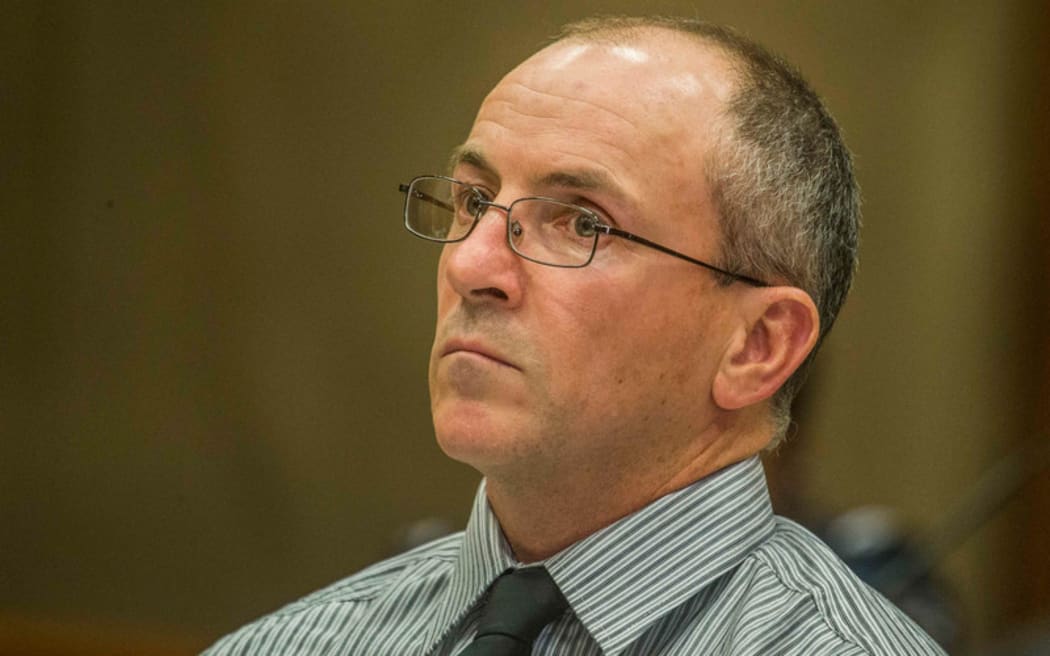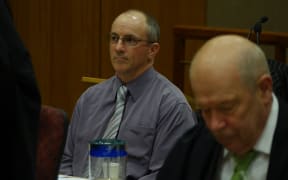Governor-General Dame Patsy Reddy has referred Scott Watson's convictions for murder back to the Court of Appeal, Justice Minister Andrew Little has announced.

Scott Watson in High Court. Photo: Pool / John Kirk-Anderson
Watson has been in prison since 1999 for the murders of Olivia Hope, 17, and Ben Smart, 21, who disappeared in the Marlborough Sounds on New Year's Day 1998.
He unsuccessfully appealed to the Court of Appeal in 2000 and lost a subsequent application for leave to appeal to the Privy Council.
This is the fourth time Watson has challenged his convictions for the murders.
He had made unsuccessful appeals to the Court of Appeal and the Privy Council, then a first application for the Royal prerogative of mercy in November 2008, which was ultimately declined by the Governor-General on the advice of then-Justice Minister Judith Collins in July 2013.
This second application for the Royal Prerogative was launched in 2017, on the basis that the DNA evidence linking two hairs removed from a blanket seized from Watson's boat with Hope was unreliable.
Former High Court judge Sir Graham Panckhurst was instructed to conduct a review of Watson's second application, the material considered by McDonald and her conclusions, and provide a comprehensive report.
"After thoroughly considering Sir Graham's advice and the ministry's report, I advised Her Excellency to refer Watson's convictions back to the Court of Appeal for further consideration. The Governor-General accepted my advice, and granted Watson's application," Little said.
"As the matter will shortly come before the courts, I will not be making any further comment," Little said.
Jonathan Krebs, one of the lawyers who helped free Teina Pora, began helping Watson with his case in 2017.
He told RNZ at the time he had been approached with the report about the two strands of hair, and having looked at it was persuaded that it was worth the authorities having another look at the case.
"Because there is this further evidence now available, it changes the whole complexion of the case and we think that there are potentially arguments which can be made to suggest that the convictions might have been wrong."
The application included a report by forensic consultant Sean Doyle, which was commissioned by Brian McDonald, a Watson supporter.
In a 22-page report, Doyle said the DNA and hair samples presented at the original trial were of a lesser quality than they would be today.
"The microscopic comparison of hair is no longer regarded as a very strong or high quality part of evidence. Because of that it would be strongly challenged today, if it was presented in court," Doyle's report said.
"Again, the DNA analysis back in those days wasn't as sophisticated or as discriminatory as it is today and therefore that DNA evidence would be more strongly challenged if it was presented in court today."
McDonald also said the hairs were not found on Watson's home built sloop, but three months later in the lab when evidentiary hairs and sample hairs were examined at the same time, breaching accreditation protocols.
An Order in Council to implement the Governor-General's decision will now be prepared.
The case will be heard by the Court as a further appeal.



